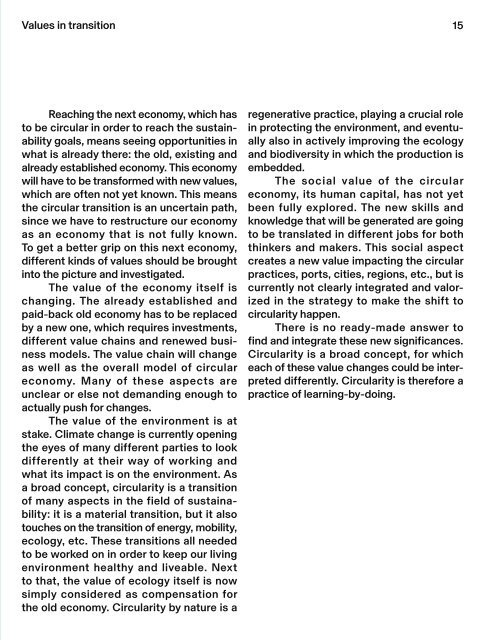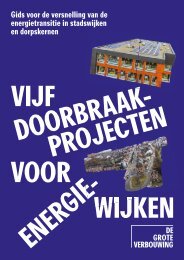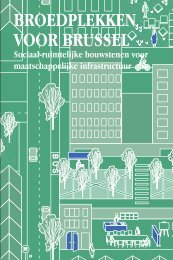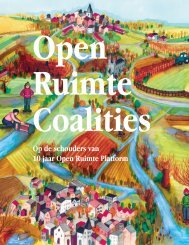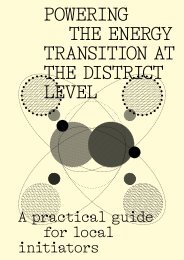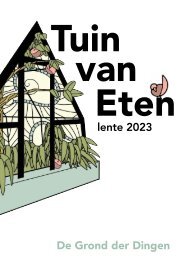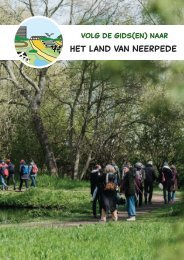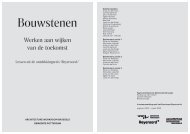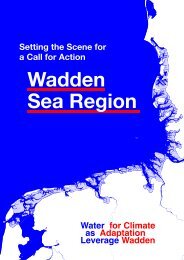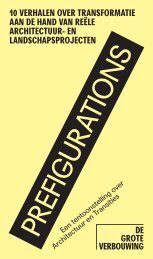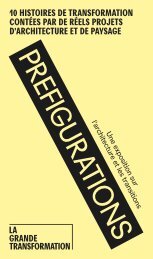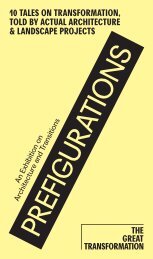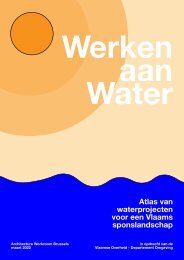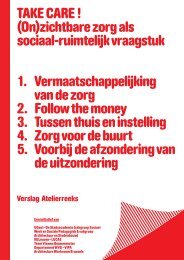Circular (City) Ports_Shaping Future Changes
- No tags were found...
Create successful ePaper yourself
Turn your PDF publications into a flip-book with our unique Google optimized e-Paper software.
Values in transition<br />
15<br />
Reaching the next economy, which has<br />
to be circular in order to reach the sustainability<br />
goals, means seeing opportunities in<br />
what is already there: the old, existing and<br />
already established economy. This economy<br />
will have to be transformed with new values,<br />
which are often not yet known. This means<br />
the circular transition is an uncertain path,<br />
since we have to restructure our economy<br />
as an economy that is not fully known.<br />
To get a better grip on this next economy,<br />
different kinds of values should be brought<br />
into the picture and investigated.<br />
The value of the economy itself is<br />
changing. The already established and<br />
paid-back old economy has to be replaced<br />
by a new one, which requires investments,<br />
different value chains and renewed business<br />
models. The value chain will change<br />
as well as the overall model of circular<br />
economy. Many of these aspects are<br />
unclear or else not demanding enough to<br />
actually push for changes.<br />
The value of the environment is at<br />
stake. Climate change is currently opening<br />
the eyes of many different parties to look<br />
differently at their way of working and<br />
what its impact is on the environment. As<br />
a broad concept, circularity is a transition<br />
of many aspects in the field of sustainability:<br />
it is a material transition, but it also<br />
touches on the transition of energy, mobility,<br />
ecology, etc. These transitions all needed<br />
to be worked on in order to keep our living<br />
environment healthy and liveable. Next<br />
to that, the value of ecology itself is now<br />
simply considered as compensation for<br />
the old economy. <strong>Circular</strong>ity by nature is a<br />
regenerative practice, playing a crucial role<br />
in protecting the environment, and eventually<br />
also in actively improving the ecology<br />
and biodiversity in which the production is<br />
embedded.<br />
The social value of the circular<br />
economy, its human capital, has not yet<br />
been fully explored. The new skills and<br />
knowledge that will be generated are going<br />
to be translated in different jobs for both<br />
thinkers and makers. This social aspect<br />
creates a new value impacting the circular<br />
practices, ports, cities, regions, etc., but is<br />
currently not clearly integrated and valorized<br />
in the strategy to make the shift to<br />
circularity happen.<br />
There is no ready-made answer to<br />
find and integrate these new significances.<br />
<strong>Circular</strong>ity is a broad concept, for which<br />
each of these value changes could be interpreted<br />
differently. <strong>Circular</strong>ity is therefore a<br />
practice of learning-by-doing.


